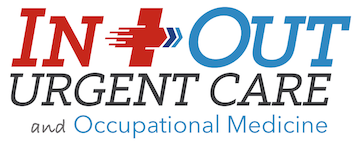Influenza, also dubbed the flu, is a contagious virus that affects millions annually. It is highly contagious and can cause serious health complications, especially in high-risk groups, such as older people, young children, and people with weakened immune systems. Here are the flu symptoms to observe, how to treat them, and when to seek urgent care.
Symptoms of the Flu
The flu can generate a scope of symptoms, including:
- Fever
- Body aches and headaches
- Fatigue
- Coughing
- Sore throat
- Runny or stuffy nose
- Chills and sweats
These symptoms can appear suddenly and last several days or weeks. The flu can sometimes lead to more severe complications, such as pneumonia, bronchitis, or even death.
How to Treat the Flu
A virus causes the flu, so antibiotics are ineffective in treating it. However, there are several things you can do to alleviate your symptoms and help your body fight the infection:
Rest and Hydration
Your body needs plenty of fluids to fight the infection, so drink water, juice, or soup regularly. Bypass alcohol and caffeine, as they can dry you out.
Over-the-Counter Medications
Over-the-counter medications, such as acetaminophen or ibuprofen, can help reduce fever, headaches, and body aches. Follow the recommended dosage and do not give aspirin to children or teenagers with the flu, as it can cause a rare but serious condition called Reye’s syndrome.
Antiviral Medications
If you see a doctor within the first 2 days of experiencing symptoms, they may give you antiviral medicine like Tamiflu or Relenza. These medicines can make you feel better faster and lessen the severity of your symptoms by preventing the virus from spreading in your body.
When to Seek Urgent Care
Most people recover from the flu without serious complications within a week or two. However, some people may develop severe symptoms that require urgent care. Request medical treatment promptly if you encounter any of the following:
- Difficulty breathing or shortness of breath
- Chest pain or pressure
- Severe headache or confusion
- Persistent vomiting or diarrhea
- Seizures
- Bluish lips or face
If you experience these signs, it could mean that you have a serious flu-related complication like pneumonia or respiratory failure, and you should seek medical help without delay.
Preventing the Flu
The most effective method to avoid getting the flu is by receiving a vaccination annually. The flu shot is secure and efficient and can decrease your chances of catching the flu by 60% at most. It’s crucial for high-risk populations, such as seniors, young kids, and individuals with weakened immune systems, to be vaccinated.
You can also take these steps to reduce your risk of getting the flu:
- Clean your hands often by washing them with soap and water or using a hand sanitizer containing alcohol.
- Try to stay away from people who are ill to prevent getting sick yourself.
- When you cough or sneeze, shield your mouth and nose.
- If you feel unwell, remain at home and limit your interaction with people around you.
Final Thoughts
Having the flu can be a miserable experience, but it’s important to take steps to prevent the spread of the virus to others. These simple tips can protect yourself and those around you from getting sick.
If you need quick medical attention, visit In & Out Urgent Care Clinic in New Orleans, LA. Our experienced medical professionals offer efficient and affordable urgent care services for all your non-life-threatening medical needs. Walk-ins are welcome, so visit us today!

